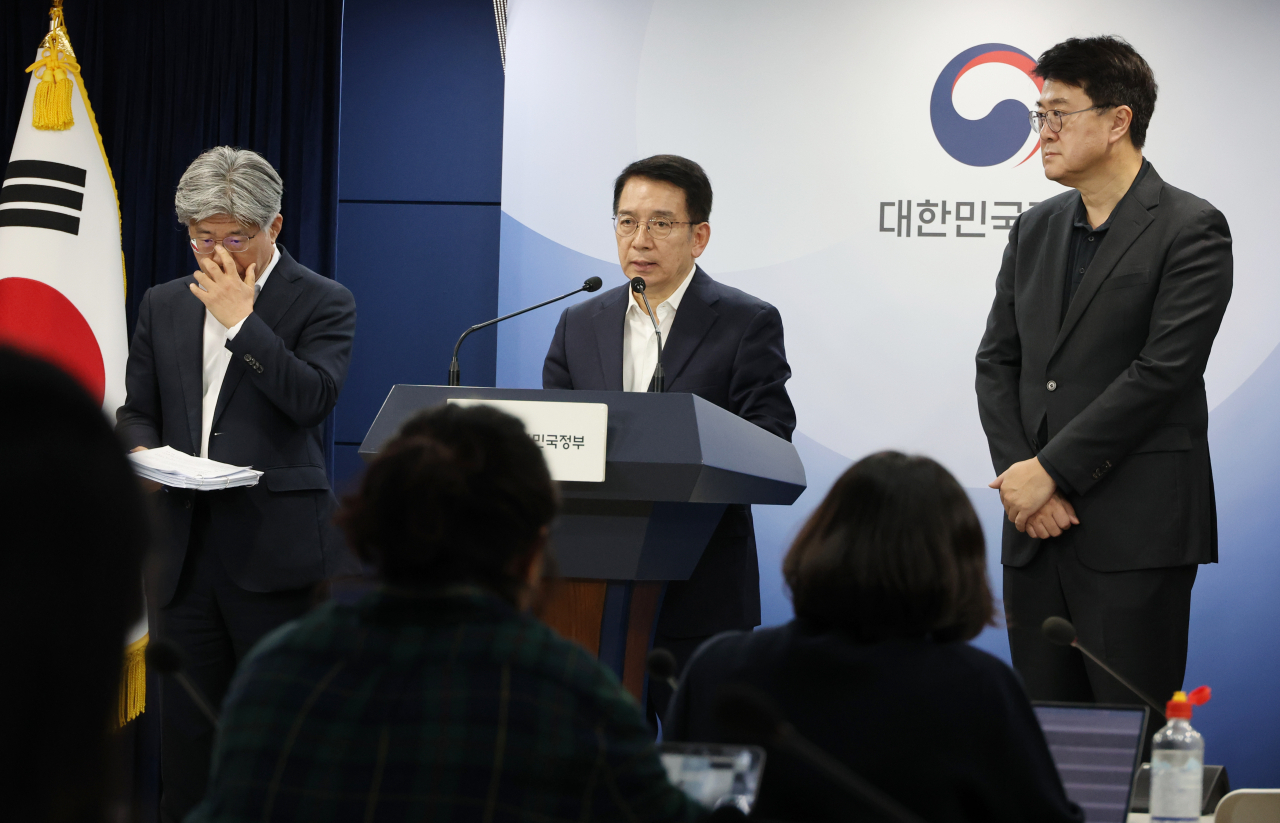
 |
| Lee Jung-hee (center), head of the government consultative body overseeing discussions on delivery platform commissions, announces the outcome of the 12th and final meeting, in a press briefing at the Seoul government complex on Thursday. (Yonhap) |
Delivery platforms and their partnered restaurants reached an agreement Thursday on reducing controversial commission fees to 2 to 7.8 percent from the current 9.8 percent starting next year, officials said.
The decision came in the 12th round of a meeting held by a government consultative body overseeing the discussions, attended by representatives from Baedal Minjok, or Baemin, as well as smaller competitors Coupang Eats and Yogiyo, along with small business owners registered with these platforms.
Under the agreement, participants agreed to introduce a tiered commission system that categorizes merchants based on their revenue within the app, allowing lower-revenue merchants to qualify for reduced commission rates.
By revenue, merchants whose revenue falls in the top 35 percent will be charged a 7.8 percent commission fee, followed by a 6.8 percent fee for those whose revenue falls in between 35 and 80 percent and 2 percent for the bottom 20 percent.
The plan, reached after monthslong negotiations that kicked off in July, will apply for three years beginning next year.
Both Baemin and Coupang Eats currently charge a 9.8 percent commission on food prices, while Yogiyo charges 9.7 percent.
However, merchants have continued to push for a flat 5 percent cap on commission rates.
Thursday's meeting was held impromptu after the consultative body had urged the platform operators to revise their proposals and improve their existing offers.
Baemin, owned by Woowa Brothers, reportedly holds around 60 percent of South Korea's food delivery app market, with the remaining share divided between GS Retail's Yogiyo and Coupang Eats, the food delivery arm of e-commerce giant Coupang.
South Korea is one of the world's largest food delivery markets, valued at over 20 trillion won ($14.4 billion), driven by high smartphone penetration and a densely populated urban environment.









